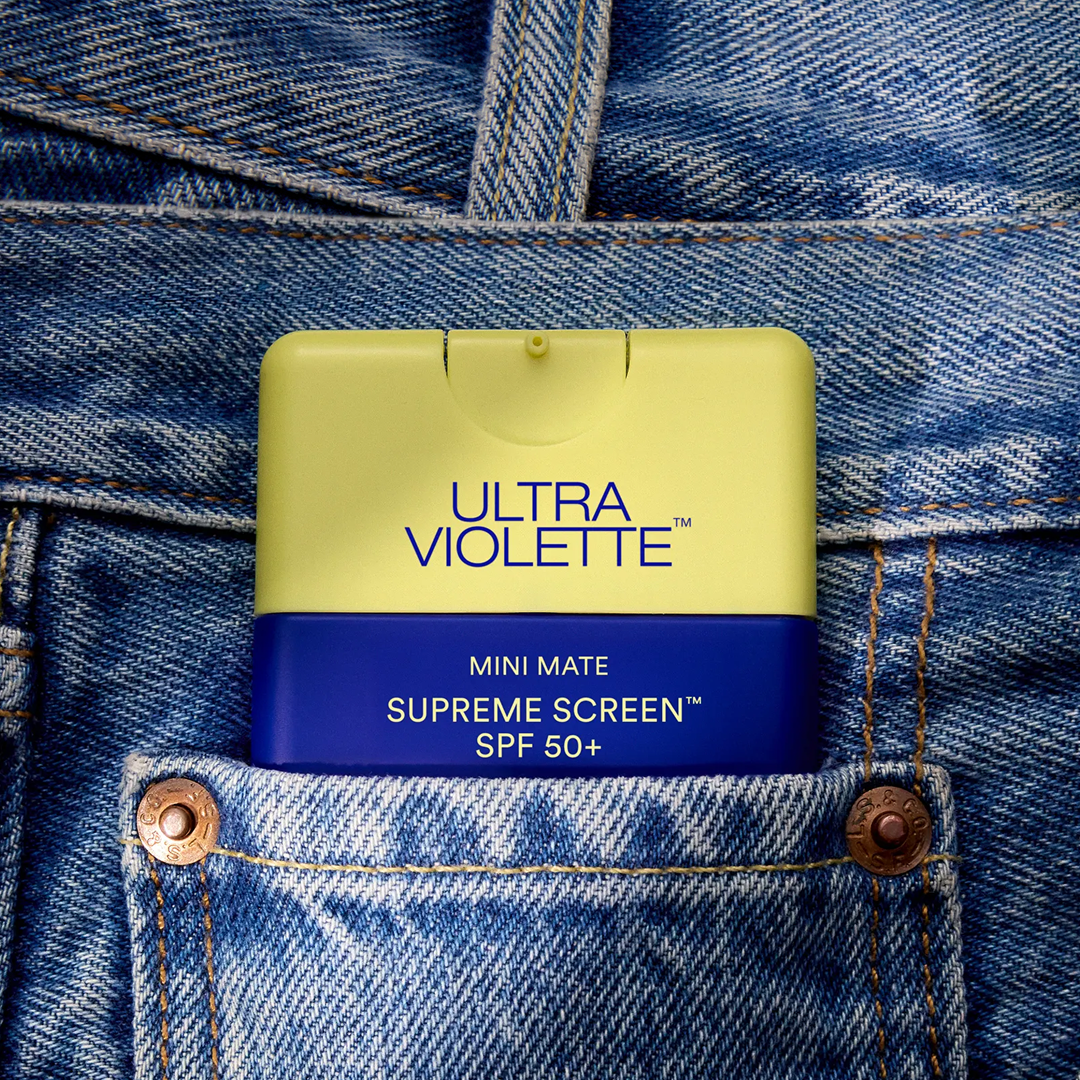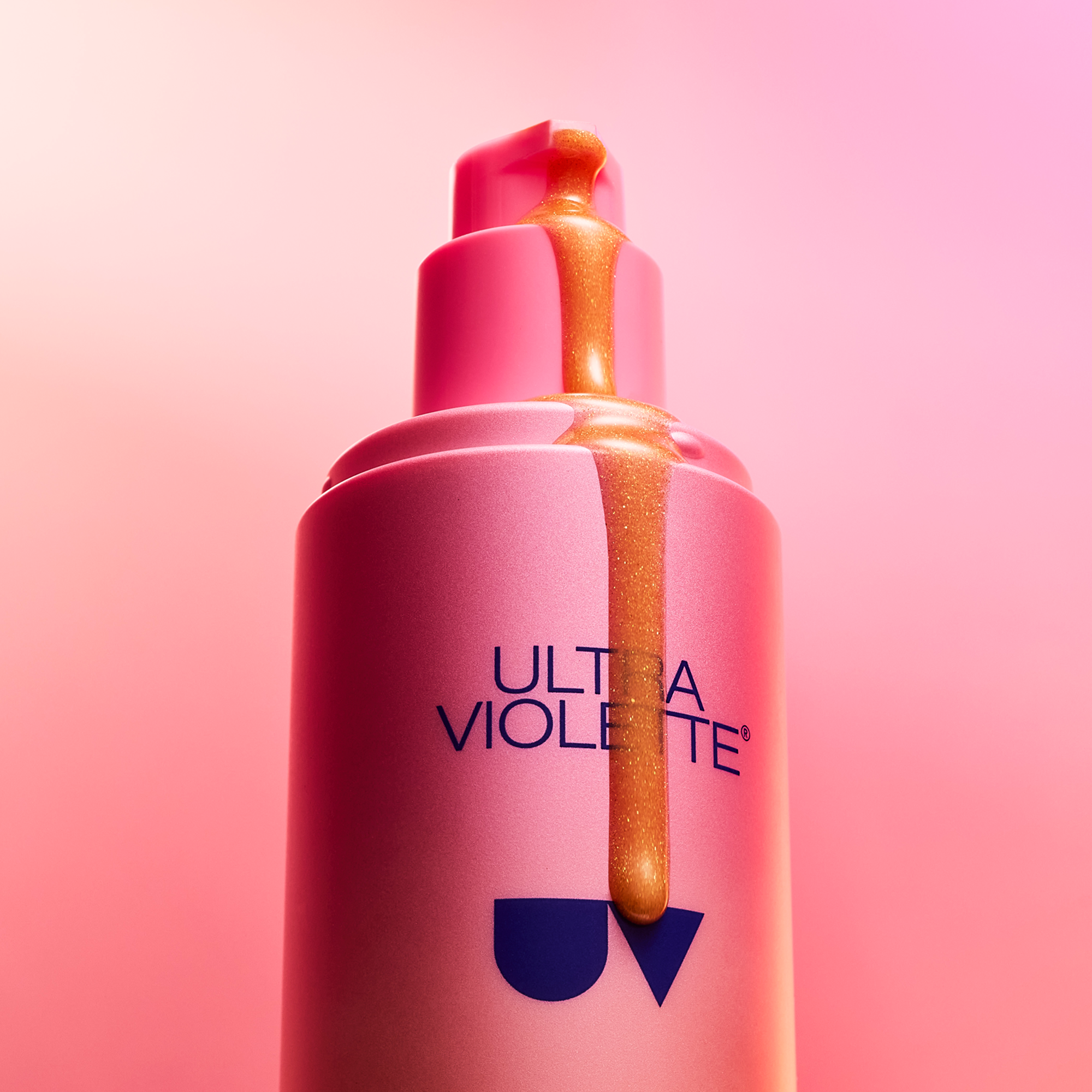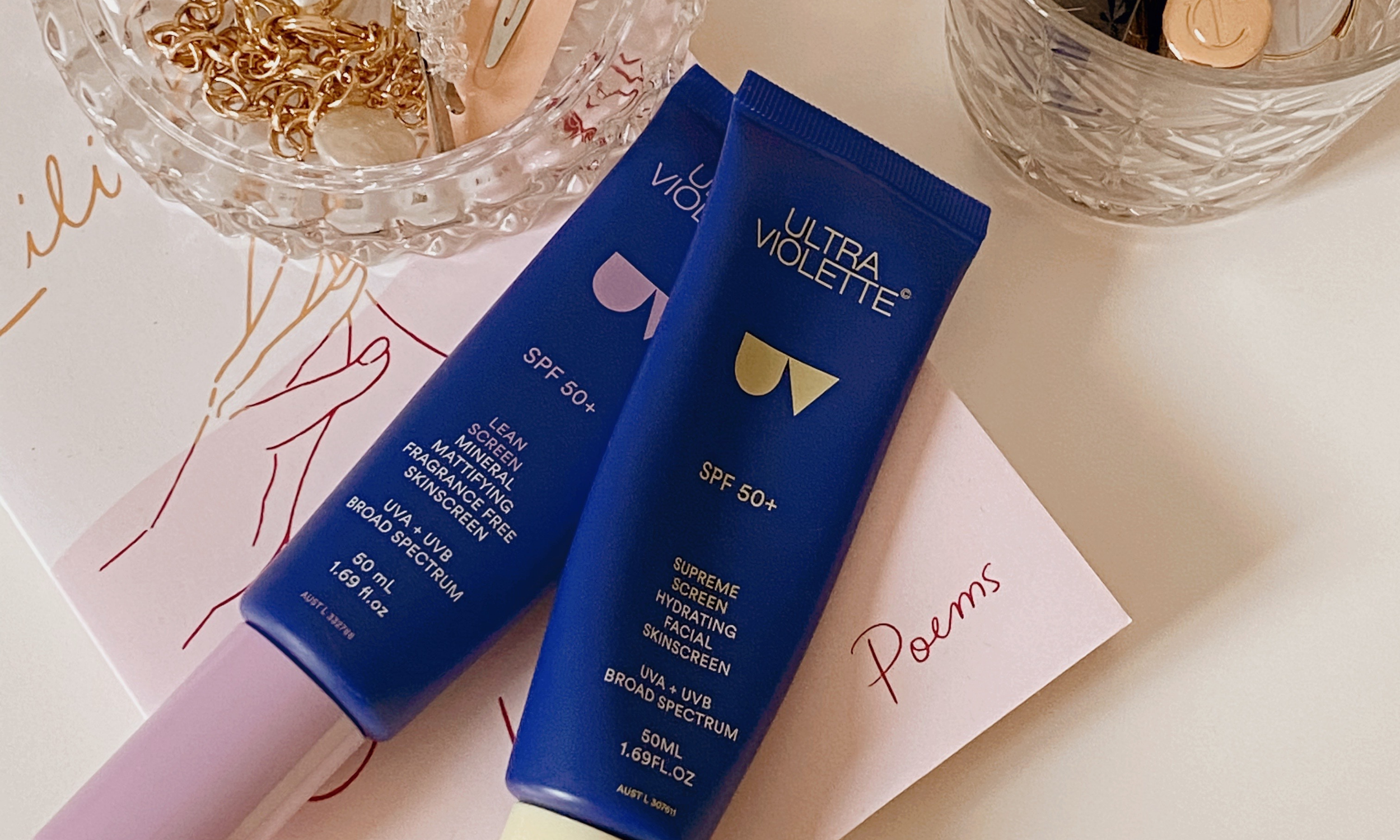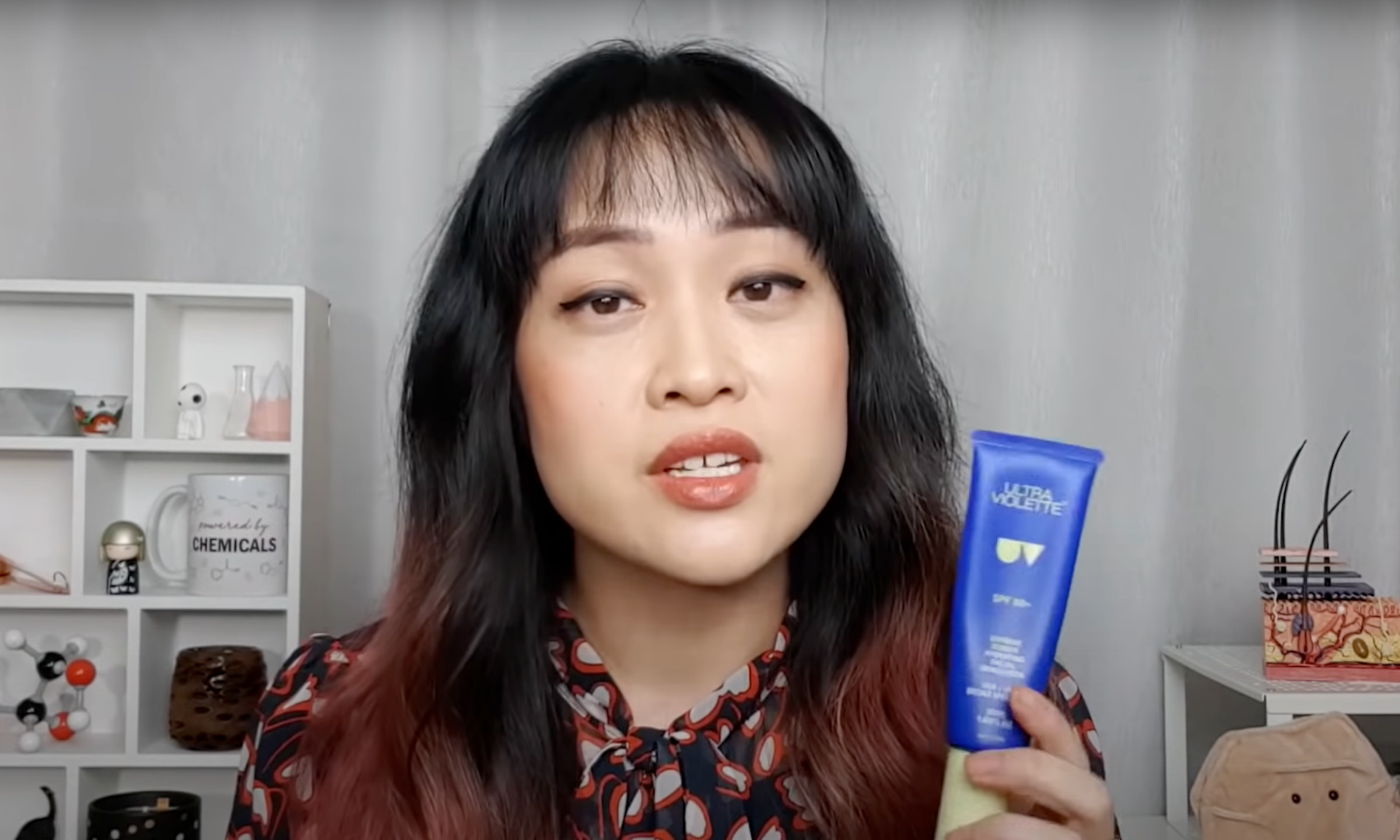Perennially confused about the order of your skin care products? Sunscreen before or after moisturiser? To double-cleanse or not? Let us help you refine and perfect that skincare routine.
Meet Dr Michele Squire; a PhD-qualified scientist and former Registered Nurse who created Qr8 MediSkin to offer personalised prescription skincare treatment, using advanced formulations unavailable anywhere else, for patients to treat their skin with confidence.
It’s my most-asked question: How do I design a great skincare routine? This is often code for ‘how do I get an ethereal goddess glow?’
My first answer is to tune out trends, overblown promises of immediate results, and strong exfoliants masquerading as miracle ‘glow’ potions. The secret to a great skincare routine is actually rather boring: a well-hydrated and healthy skin barrier. How do you get that? Consistency, gentleness, a few-well chosen products, and sunscreen of course!. The enemy of glow? Spending a gazillion bucks on too many products and layers. This is the single most common cause of dryness, irritation, redness and dull/lacklustre skin that we see.
When it comes to designing an exact routine, everyone’s skin, lifestyle, budget and concerns/goals are different, but as a general guide, a good daily routine should look something like this:
AM: Cleanse + Moisturise + Protect
PM: Cleanse + Treat + Moisturise
WEEKLY: Targeted Treat (optional)
Let’s break it down:
Cleanse - twice daily (maximum) with a mild cleanser to remove excess sebum, sweat, makeup, sunscreen, dirt/pollution, microbes and skin cells that can clog pores.
You don’t need fancy ingredients like vitamins in your cleanser because they’re not on your face for long enough to be effective, and are often included to justify an equally fancy price point.
You can use the same cleanser day and night.
Do you need to double cleanse? For most people, on a daily basis, no. If you're using a cleanser (no matter if it’s gel, milky/creamy, oil/balm or foaming) that removes your makeup and sunscreen without leaving your skin feeling tight, dry, 'squeaky' or itchy afterwards, then you shouldn't need any more than that. Even waterproof sunscreens are effectively removed with a single, thorough oil cleanse – just choose one that rinses cleanly without leaving an oily residue. (Read more detail about the science of this on my Instagram here). If you wear makeup and find yourself scrubbing at your skin or needing multiple cleanses to remove it, then adding a micellar water as a makeup remover before cleansing will be more gentle on your skin (or just stick with a single oil cleanse).
Moisturise - the most important of all skincare steps in making your skin look and feel soft, hydrated and glow-y. Moisturisers work to keep the skin barrier healthy by minimising water loss, smoothing over dry skin cells, and temporarily plumping fine lines/wrinkles/texture by trapping water in the outer skin layers. More about the science of moisturizing ingredients here.
To give it some extra hydration to trap, skip mists and sprays and just apply your moisturiser to damp skin.
Don’t buy into ‘miracle’ cream hype - most of the beneficial effects of any moisturiser are due to simple moisturising ingredients (like glycerine, hyaluronic acid, silicones, lipids) rather than expensive ‘active’ ingredients. Just choose a texture that makes your skin feel soft and comfortable and doesn’t break the bank.
You can use the same moisturiser day and night, but some people opt to keep things lighter during the day so they can use enough sunscreen without the whole lot sliding off their face, or pilling into those annoying little balls. You can also use your light day cream with a few drops of oil at night.
Use it around your eyes (not on the eyelids) as an eye cream.
Sunscreen before or after moisturiser?
One of the confusing questions people ponder when it comes to their routine is the order to put your skincare products on. Is it sunscreen before or after moisturiser? This one is hotly debated by dermatologists but our rule is sunscreen after moisturiser to protect your skin from UV rays. Anything layered on top of sunscreen can dilute the formula and therefore reduce the effectiveness of the product.
And no, you definitely CANNOT use a moisturiser with SPF as your sunscreen (but I’m preaching to the converted here!).Protect (with sunscreen, obvs) - the least sexy, but most effective, weapon against aging in your routine. Daily, cumulative exposure to UV rays is responsible for 70-90% of the signs of aged skin - deep wrinkles, rough, dull skin, redness, broken capillaries and hyperpigmentation. Applying the correct amount of a high factor (at least SPF30, preferably SPF50) sunscreen every day is key to keeping your glow for years to come.
Treat – this is where things get personal (and often blown out of proportion). There’s an ABUNDANCE of products available in this category: serums, oils, exfoliants, masks, and, and, and... Don’t try to treat everything at once – pick your priority skin concern and treat that, otherwise you will just end up getting confused, often making things worse.
Before you choose a treatment product, think about whether you really need it. For example, if you are using a prescription retinoid for anti-aging, then a peptide serum isn’t going to achieve anything by comparison.
Don’t do a big haul and use all your new treatment products together – if something goes wrong you won’t know how to trouble shoot (and if something works, you also won’t know what it is).
Our favourites in this category are gentle, leave-on chemical exfoliants (low strength glycolic or salicylic acids, lactic acid for super hydration, or the newer gluconolactone/lactobionic acids), hyaluronic acid and niacinamide serums, oils, vitamin A products. If you’re going to use more than one product, layer from watery to greasy/oily texture.
Don’t expect cosmetic products (even those marketed as ‘cosmeceuticals’) to do the heavy lifting if you have acne, pigmentation, melasma, sun damage or significant ageing-related concerns. To target these, you need the kind of skincare actives that are only available on a doctor’s prescription. Try Qr8 MediSkin for a custom blended formula that can target multiple concerns at once.
Targeted Treat – this is your self-care hydrating sheet mask moment, or the time for higher strength exfoliating acids. The same rules apply - don’t do everything at once.
Check out Qr8 and their new Qr8 MediSkin service HERE!






